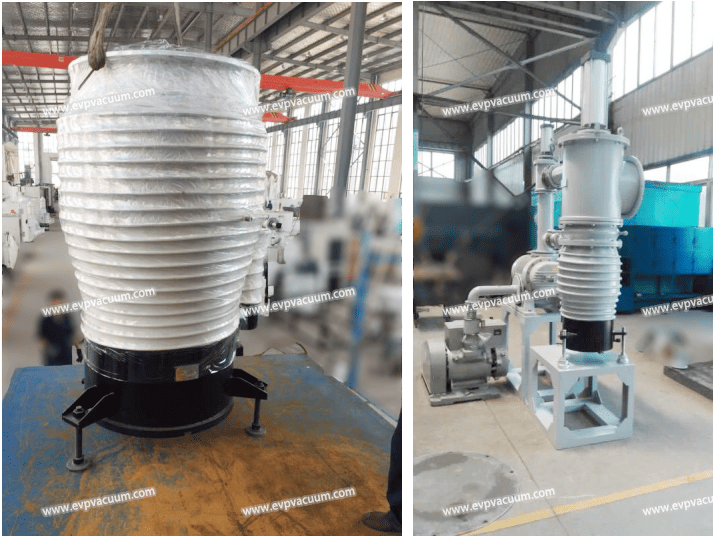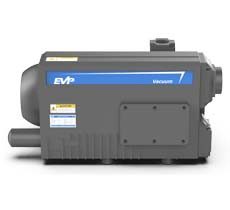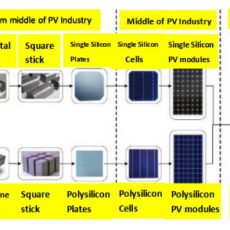Oil Diffusion Vacuum Pumps in Graphite Impregnation Processes of Innovative Application
Oil Diffusion Vacuum Pumps
Oil diffusion vacuum pumps were used in graphite impregnation processes, setting a new benchmark for the industrial production of high-precision graphite materials. This technological breakthrough is poised to enhance material performance in aerospace, nuclear energy, semiconductors, and other advanced industries.
Principles of Graphite Impregnation:
Graphite, renowned for its thermal conductivity, high-temperature resistance, and chemical stability, is widely used in critical components for extreme environments (e.g., rocket nozzles, nuclear reactor seals). However, natural graphite contains porous structures that trap gases and impurities, leading to mechanical weakness or corrosion risks.
Graphite impregnation involves injecting resins, metals, or ceramics into graphite pores under vacuum conditions, filling microscopic defects to enhance density, strength, and impermeability.
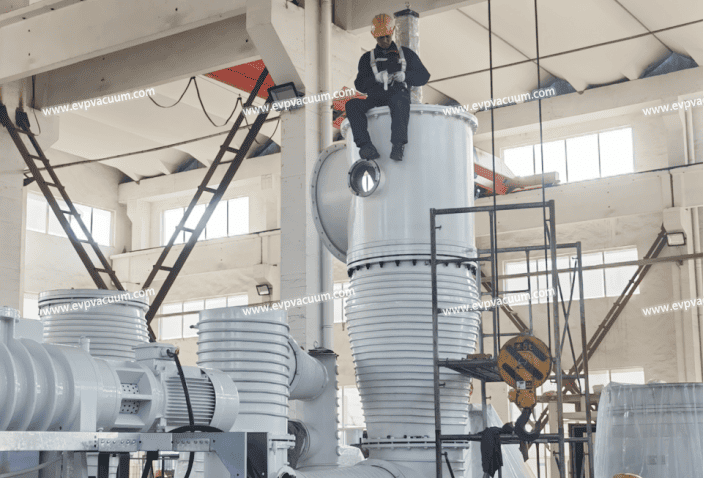
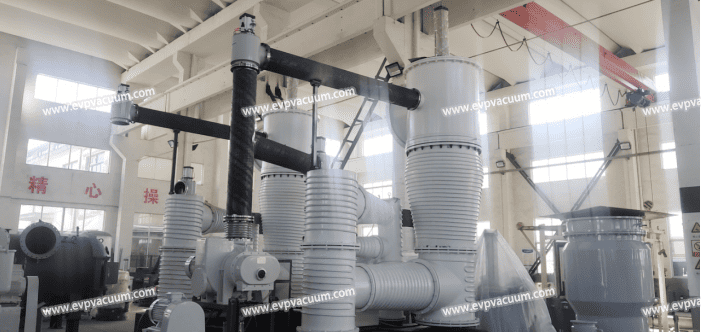
Oil Diffusion Vacuum Pumps of Key Role
Conventional vacuum systems struggle to achieve the ultra-high vacuum (<10⁻⁶ mbar) required for graphite impregnation. Oil diffusion vacuum pumps, with their unique design, provide the ultimate solution:
1. Ultra-High Vacuum Environment
By utilizing high-speed vapor jets to capture gas molecules, oil diffusion pumps reduce chamber pressure to 10⁻⁷~10⁻⁹ mbar, completely removing gases and moisture from graphite pores to ensure unimpeded impregnation.
2. High-Temperature Compatibility
Graphite impregnation often occurs at elevated temperatures (150~300°C). The pump’s thermal stability and resistance to heat loads ensure continuous and consistent operation.
3. Industrial-Scale Efficiency
When paired with primary pumps (e.g., rotary vane or screw pumps), oil diffusion systems enable rapid evacuation and large-volume processing for mass production.
Why Choose Oil Diffusion Pumps?
Ultra-High Vacuum Performance: Eliminating Pore Trapped Gases
The success of graphite impregnation hinges on completely removing gases and moisture from its porous structure to ensure full penetration of impregnants (e.g., resins, metals). While conventional pumps struggle to sustain ultra-high vacuum below 10⁻⁶ mbar, oil diffusion pumps reliably achieve 10⁻⁷~10⁻⁹ mbar, enhancing impregnation uniformity and material density.
High-Temperature Stability: Built for Demanding Conditions
Graphite impregnation often operates at 150~300°C. Oil diffusion pumps, engineered with heat-resistant materials and low-vapor-pressure oils, maintain stable performance under extreme thermal loads, eliminating vacuum degradation or downtime caused by temperature fluctuations.
Use Cases
High-temperature impregnation of graphite seals for nuclear reactors;
Anti-oxidation coating of graphite crucibles for semiconductor applications.
Industrial-Scale Efficiency: Enabling Mass Production
When paired with primary pumps (e.g., dry screw pumps), oil diffusion systems evacuate large chambers to ultra-high vacuum in under 30 minutes—50% faster than conventional systems—while supporting 24/7 continuous operation for mass production of fuel cell bipolar plates, aerospace components, and more.
Industry Outlook
According to Global Market Insights, the global graphite impregnation market is projected to exceed $12 billion by 2030. Oil diffusion pumps, with their precision and reliability, will be pivotal to this growth.
(The article comes from the Internet. If reprinting is not allowed, please contact our company to delete it.)

